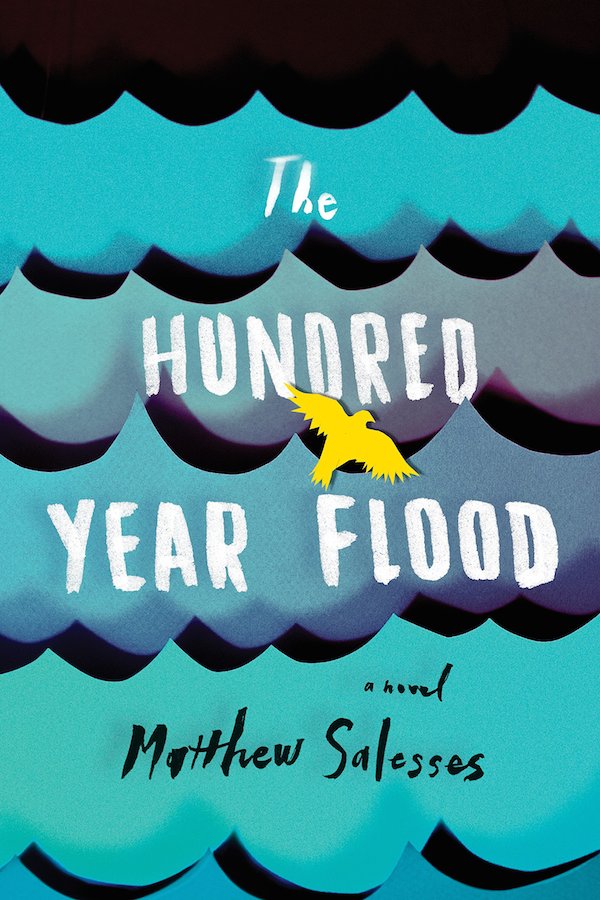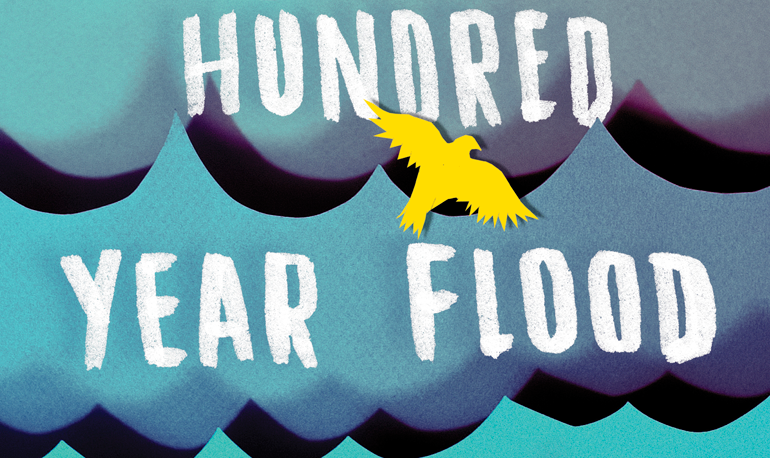Tee touched the books Ynez had touched, his fingers still with the warmth of her wrist. In the story he’d wanted to tell her, he had run away from home with a photo of his birth mother.
His parents lived in a renovated farmhouse outside of Boston, the yard bordering a forest where lost dogs were often found. When he was a boy, those woods had seemed to him a fairy world where anything was possible. The winter he turned six, he had a sharp feeling, like an earache, and while his parents fought over his father’s latest indiscretion, he pocketed the sole photograph of his birth mother and snuck into the snow-glistened trees.
The black-and-white Polaroid was the one thing Tee had from Korea, proof he was hers. He’d already memorized her face against his own (her softer angles, her darker skin). He’d memorized the smell, plastic with the slightest trace of coffee—maybe his father had spilled on it. On the back of the photo, his father had written the three syllables she’d said before she died, Kang Seul Peum. In the woods Tee chanted these syllables like a spell. He made a circle of snowballs around him. He wondered if, as his father had guessed, she had tried to name him. For a while, under the snow-bent trees, Tee enjoyed the anticipation. He imagined his mother appearing in a blue flame, like in a cartoon he had seen. But once the sun set, the universe shifted. His fingers froze, and the snow blew and melted against his cheeks like tears. He recalled the Medusa from his father’s book of myths, able to turn a boy to stone. All night he waited for some monster to find him, and in the morning, as he made his way to a neighbor’s house in the half-light, cold and sick and wet, the photo had lost its protection.
When he got home, his mother called his father in from the woods. Tee heard a flashlight flick off in the foyer. They rubbed his body until he stopped shivering, but they couldn’t halt the march of illness. Pneumonia weakened him, flooding his lungs until it got hard to breathe, and when red dots burst on his chest, they discovered he’d caught chicken pox as well, from school. In two weeks he lost ten of his fifty pounds. He dreamed of his birth mother stretchered into the hospital, dying, like on TV. She reached for a tall American with a broken leg. Had they made a pact? Her hand covered his, and it was agreed. The half-pale boy emerging in a mix of afterbirth and death would go to America.
For a while, after the flood, Prague would seem to gather back up inside Tee, piece by piece. The problem was, there had always been something itching inside him, fluttering like a bird in his throat, waiting to fly out. He didn’t know when the itching had started. He had felt it in those woods when he was six.
In August, in Prague, the flood would seem a surprise, though storms came and went for weeks beforehand. Police and firefighters raised steel barriers along the embankments in Old Town but left the Karlín district unprotected. On the news a former construction worker warned that buildings in Karlín could collapse, built too quickly—with unfired bricks. An analyst predicted deaths and lawsuits. The city surrendered its boundaries. Citizens defended museums and places of worship with sandbags. In the rain an evacuation was ordered, but people thronged to bridges and riverbanks to watch. Sections of sidewalk buckled like tiny tectonic plates. Trees tipped over in the oversaturated soil and had to be tethered like barges. Metro lines were shut down too late to protect them. The river washed parts of other cities into Prague. The river pulled down levees, then buildings. The river washed parts of Prague into other parts of Prague, then into the rest of Europe.
From where Tee watched in his second-floor apartment, the flood made a high brown sea just below his window. He smelled the sewage in the water. He wondered how he had let himself miss the signs. How strange the way we wade into disaster, step after step, not realizing how far we’ve gone until we’re drowning.
Just before the flood, Katka had asked about Korea as the raindrops formed fat planets against the windowpane. Her finger followed the streaks across the glass.
“A Korean friend told me once about his visits as a kid,” Tee said. “Everyone looked like him, but he still didn’t belong.”
Katka touched her temple where her skin met her hair. “No one your age,” she said, “feels like he belongs.”
This was the same woman who had cursed at the Thai massage parrot. How did she really see him: his quick black eyes, the scar on his chin that toughened his boyishness, his flat cheeks and curved nose, the cream in his brown skin that seemed to make white people touch him without realizing. He was a believer, as Pavel had painted. In college he had listed ambitions: get a girlfriend, be a writer, drink more water, fall in love. He had believed in the kind of weight that could drag whatever fluttered in his throat down to more comfortable depths—a someplace or a someone.
Katka smoothed his hair, and he said, “You don’t know what it’s like to be adopted. People see you as who you were at birth. But you’re not that person.”
At that point, the flood was still weeks off. He opened the window and caught rain in the cup of his palm. Katka pulled his hand in, and for a moment, he thought for some reason that she would lower her lips to the water and drink. She splashed his face. He pulled back in anger, but her grin conquered him.
Excerpted from The Hundred-Year Flood by Matthew Salesses. © 2015 by Matthew Salesses. Published by Little A 2015. All Rights Reserved.




